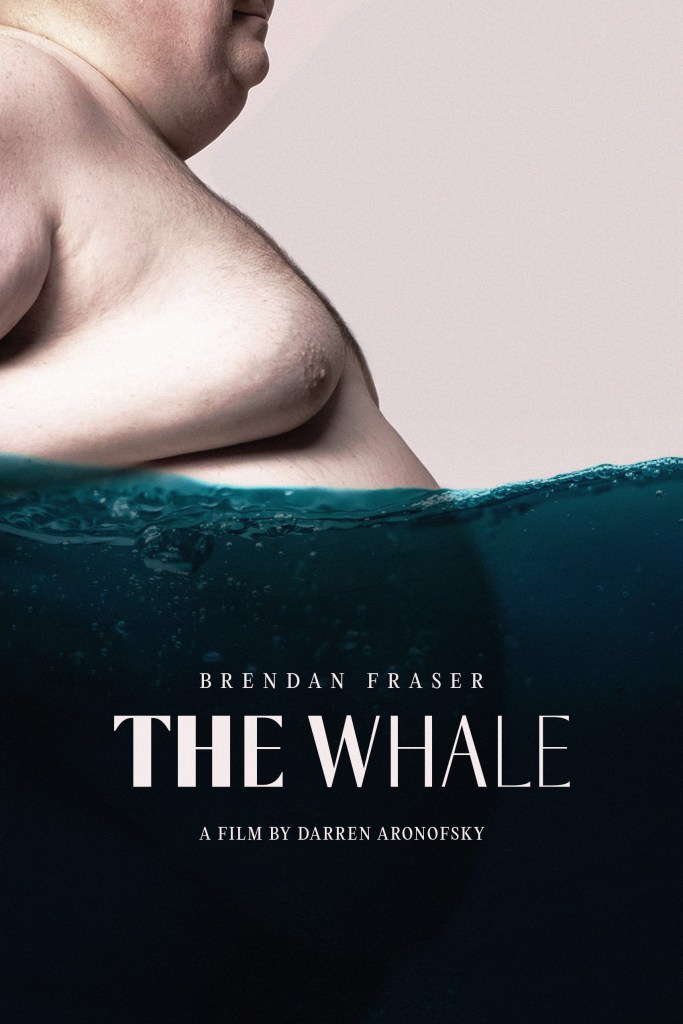
Honestly,
I have regarded Darren Aronofsky as my favorite director for 20 years. He competes in a space that he shares with provocateur directors such as Lars Von Trier and David Lynch but I have an affinity with his films, unlike the others. The first of his films I saw was Pi when I was about 17 years old. It was unlike anything I had seen before. Subliminal glory between the lines of brutalizing flesh. And every film of his after wrestles with threadbare flesh trying to make contact with glory.
His most recent incarnation The Whale grapples with this same universal and persistent question that is the substance of all his films; what is the meaning of all this?
It’s no coincidence that I have such an affinity with an Atheist Jew who can’t resist existential questions that have spiritual overtones. He and I, or at least his art and I, have the same curiosities, wrestle with the same nagging life pangs, both wish for truth to break through the veneer. The caged bird does indeed sing. We’re all caged inside our flesh, our vices, our peccadilloes. The spirit is caged inside the body.
There is a scene when the missionary, Thomas, discovers Charlie’s lover’s Bible and the passage under Roman’s 8:13 is highlighted.
For if you live according to the flesh you will die, but if by the Spirit you put to death the deeds of the body, you will live.”
The Whale is the most acute examination of the body as a cage that Aronofsky has explored to this point. The film is a slow burn. It is quite a passive film compared to Aronofsky’s last film mother! that was frantic chaos. The passivity is purposeful. Charlie puts up no resistance to the fate of each day. He is Superman at weathering blows. The few loved ones in his life, at first sight, are uncomfortably abusive. We, the audience, can’t believe the cruelty.
There is a scene where his estranged daughter manipulates morbidly obese Charlie into getting to his feet and walking to her that reminded me of a perversion of Christ’s walking on water. He ends up crushing the end table under his weight and flopping down into a devastating heap that is utterly heartbreaking. His daughter storms out the door in disgust.
There is another scene where we can infer that his daughter smashed a plate that had food remnants on it that Charlie was using to feed a bird on his window sill, the one creature who gave him comfort. Again, how evil of her. But there is more than first sight with Aronofsky films. We learn through its slow crescendo that the finale to this story is about freeing the caged bird. When that bird feeds at Charlie’s plate each day it grows dependent, it has no desire to explore, it becomes imprisoned in its domestication. The missionary, too, is caged in his assumption that his past is irredeemable. His daughter is caged inside her abandonment. Charlie’s lover is caged inside his religious hypocrisy. Charlie is caged inside his grief.
It was quite a poetic, quite biblical, ending. During the entirety of the story it is downpouring outside. The following is borrowed from Alissa Wilkinson writing for Vox:
“The real apocalypse is happening at Charlie’s house, at least if we take “apocalypse” to mean a moment of revelation. [The GOP primaries of 2016 are playing on tv in which Ted Cruz beats Donald Trump in Idaho where the film is set]. We know — everyone knows — that these are the last days of Charlie’s life. It’s raining continually outside, like a flood is coming. Charlie is obsessed with an essay he keeps reading about Moby-Dick, an apocalyptic book if there ever was one, about a man with an obsession and a death wish. There’s an atmosphere of dread, both of what’s about to happen in Charlie’s house and what’s going on beyond its walls.”
But in the final scenes the clouds break to sunlight. Weight becomes weightless, flesh walks on water and the spirit is freed from the body.
Charlie exclaims near the end that he thinks it’s impossible for people to be completely careless. Implying that our inherent nature, our instincts, care. In a world that so obviously perpetuates bad, is this sentiment true? I’m perplexed by this existential supposition. There is also Charlie’s obsession with honesty. He implores his students and his daughter to write honestly. Despite his own refusal to confront his flesh. It’s another perplexing theme.
But Aronofsky once again succeeds in creating a picture like that of Michelangelo’s “The Creation of Adam” in which man is reaching out for the spark of life from God.
